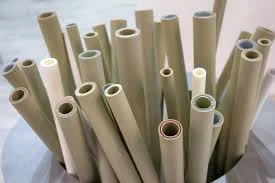
-
 Afrikaans
Afrikaans -
 Albanian
Albanian -
 Amharic
Amharic -
 Arabic
Arabic -
 Armenian
Armenian -
 Azerbaijani
Azerbaijani -
 Basque
Basque -
 Belarusian
Belarusian -
 Bengali
Bengali -
 Bosnian
Bosnian -
 Bulgarian
Bulgarian -
 Catalan
Catalan -
 Cebuano
Cebuano -
 China
China -
 China (Taiwan)
China (Taiwan) -
 Corsican
Corsican -
 Croatian
Croatian -
 Czech
Czech -
 Danish
Danish -
 Dutch
Dutch -
 English
English -
 Esperanto
Esperanto -
 Estonian
Estonian -
 Finnish
Finnish -
 French
French -
 Frisian
Frisian -
 Galician
Galician -
 Georgian
Georgian -
 German
German -
 Greek
Greek -
 Gujarati
Gujarati -
 Haitian Creole
Haitian Creole -
 hausa
hausa -
 hawaiian
hawaiian -
 Hebrew
Hebrew -
 Hindi
Hindi -
 Miao
Miao -
 Hungarian
Hungarian -
 Icelandic
Icelandic -
 igbo
igbo -
 Indonesian
Indonesian -
 irish
irish -
 Italian
Italian -
 Japanese
Japanese -
 Javanese
Javanese -
 Kannada
Kannada -
 kazakh
kazakh -
 Khmer
Khmer -
 Rwandese
Rwandese -
 Korean
Korean -
 Kurdish
Kurdish -
 Kyrgyz
Kyrgyz -
 Lao
Lao -
 Latin
Latin -
 Latvian
Latvian -
 Lithuanian
Lithuanian -
 Luxembourgish
Luxembourgish -
 Macedonian
Macedonian -
 Malgashi
Malgashi -
 Malay
Malay -
 Malayalam
Malayalam -
 Maltese
Maltese -
 Maori
Maori -
 Marathi
Marathi -
 Mongolian
Mongolian -
 Myanmar
Myanmar -
 Nepali
Nepali -
 Norwegian
Norwegian -
 Norwegian
Norwegian -
 Occitan
Occitan -
 Pashto
Pashto -
 Persian
Persian -
 Polish
Polish -
 Portuguese
Portuguese -
 Punjabi
Punjabi -
 Romanian
Romanian -
 Russian
Russian -
 Samoan
Samoan -
 Scottish Gaelic
Scottish Gaelic -
 Serbian
Serbian -
 Sesotho
Sesotho -
 Shona
Shona -
 Sindhi
Sindhi -
 Sinhala
Sinhala -
 Slovak
Slovak -
 Slovenian
Slovenian -
 Somali
Somali -
 Spanish
Spanish -
 Sundanese
Sundanese -
 Swahili
Swahili -
 Swedish
Swedish -
 Tagalog
Tagalog -
 Tajik
Tajik -
 Tamil
Tamil -
 Tatar
Tatar -
 Telugu
Telugu -
 Thai
Thai -
 Turkish
Turkish -
 Turkmen
Turkmen -
 Ukrainian
Ukrainian -
 Urdu
Urdu -
 Uighur
Uighur -
 Uzbek
Uzbek -
 Vietnamese
Vietnamese -
 Welsh
Welsh -
 Bantu
Bantu -
 Yiddish
Yiddish -
 Yoruba
Yoruba -
 Zulu
Zulu
fiberglass food grade equipment
Understanding Fiberglass Food Grade Equipment A Safe Choice for Food Processing
In the food processing industry, safety and hygiene are paramount. One of the materials gaining traction for its durability and safety features is fiberglass, especially when it comes to food-grade equipment. Fiberglass, a composite material made of fine glass fibers, has proven to be an excellent choice for various applications in this sector.
Fiberglass food-grade equipment is designed to meet strict regulatory standards set by organizations such as the FDA. This ensures that all products are safe for food contact and do not leach harmful substances into the food. The non-porous surface of fiberglass is resistant to bacteria, mold, and other contaminants, making it an ideal choice for food production environments where cleanliness is critical.
One of the most significant advantages of fiberglass is its durability. Unlike metal or plastic, fiberglass does not corrode or rust, which can be a substantial issue in moist environments common in food processing. This extends the lifespan of the equipment and reduces the frequency of replacements, resulting in cost savings for food manufacturers. Additionally, fiberglass can withstand a wide range of temperatures, making it suitable for both hot and cold food environments.
fiberglass food grade equipment

Another noteworthy feature of fiberglass equipment is its lightweight nature, which facilitates easier handling and installation. Employees can maneuver and set up this equipment without the need for specialized tools or equipment, allowing for a more efficient workflow.
Moreover, fiberglass can be molded into various shapes and sizes, providing flexibility in design and function. It can be utilized in everything from mixing tanks to conveyor systems, demonstrating its versatility in different food processing applications.
Sustainability is becoming increasingly important in the food industry, and fiberglass equipment can align with these eco-friendly efforts. Many manufacturers are now producing fiberglass from recycled materials, contributing to a circular economy while ensuring that the equipment remains safe for food use.
In conclusion, fiberglass food-grade equipment represents a sophisticated option for food manufacturers seeking safety, durability, and efficiency. Its resistance to corrosion, bacteria, and temperature fluctuations combined with lightweight and customizable designs make it a favored choice in contemporary food processing settings. As industries continue to prioritize food safety and sustainability, fiberglass equipment will likely play a crucial role in shaping the future of food production.









